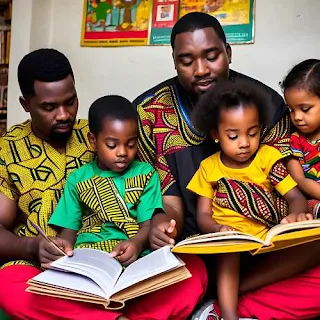Merging African History and African-American Identity
From the kingdoms of ancient Africa to the modern struggles for independence and civil rights, the history of Black people has shaped the world.
Historical, cultural, and social perspectives, exploring the ways in which African history has influenced the development of African-American identity.There is a complex relationship between African history and African-American identity. Drawing on a range of historical, cultural, and social perspectives, exploring the ways in which African history has influenced the development of African-American identity, both historically and in the present day, African history is a rich tapestry that spans centuries and continents.
African History and African-American Identity.From the kingdoms of ancient Africa to the modern struggles for independence and civil rights, the history of the African continent has shaped the world we live in today. For African-Americans, in particular, understanding the history and heritage of their ancestors can be a powerful tool for empowerment and identity.

The history of Africa is an essential part of African-American history and identity.
The ancient civilizations of Africa, such as Egypt, Nubia, and Mali, were among the most advanced in the world time. These kingdoms were centers of trade, art, and architecture, and their legacies can still be seen in the ruins and artifacts that remain today.
During the era of transatlantic slavery, millions of Africans were forcibly taken from their homelands and brought to the Americas. The history of this brutal and dehumanizing system is an essential part of African-American history, and understanding the conditions and experiences of enslaved Africans is critical to understanding the legacy of racism and oppression in America.
In the years following the Civil War, African-Americans fought for freedom and civil rights in the face of continued discrimination and violence. The history of this struggle, from Reconstruction to the Civil Rights Movement of the 1960s, is a testament to the strength and resilience of the African-American community.
African-American art, literature, and music have been shaped by the history and culture of Africa. From the rhythms of jazz and blues to the poetry of Langston Hughes and Maya Angelou, the contributions of African-Americans to the arts have been a vital part of American culture.
The Pan-African movement, which emerged in the early 20th century, sought to unite people of African descent around the world in the struggle against colonialism and racism. The ideas and principles of this movement continue to inspire and inform African-American activism and identity today.
The history of African-American education is also closely tied to the struggle for civil rights. From the establishment of historically black colleges and universities to the landmark Brown v. Board of Education decision, education has been a critical tool for advancing African-American rights and opportunities.
The history of African-American religion is also deeply connected to African heritage. The spiritual practices of enslaved Africans, such as the creation of the African Methodist Episcopal Church, helped to sustain and empower the community in the face of oppression.
The African diaspora, which refers to the global dispersion of people of African descent, has created a diverse and rich cultural heritage. From the Afro-Caribbean traditions of reggae and soca to the Afro-Brazilian martial art of capoeira, the contributions of the African diaspora have enriched the world.
In recent years, there has been a growing movement to reclaim and celebrate African heritage among African-Americans. This includes efforts to learn African languages, explore traditional African religions, and connect with the culture and history of the continent.
The history of Africa is an essential part of African-American history and identity. Understanding the legacy of African civilizations, the experiences of enslaved Africans, the struggles for civil rights, and the contributions of African-Americans to the arts and culture can be a powerful tool for empowerment and community building. By embracing their heritage and history, African-Americans can forge a strong sense of identity and pride in their shared legacy.
The Negro National Anthem is a song called Lift Every Voice and Sing, which has become a significant symbol of African-American culture and heritage. The song was written as a poem in 1899 by James Weldon Johnson, a prominent African-American writer and civil rights activist. His brother, John Rosamond Johnson, composed the music for the poem.
The song's lyrics reflect the experiences of African Americans throughout their history in the United States, from slavery and segregation to the ongoing struggle for social and political equality. It encourages African Americans to lift every voice and sing in the face of adversity, to stand up for their rights and dignity, and to celebrate their rich cultural heritage.
Another song that binds Africans and African Americans is Amazing Grace. However, the relationship between the song Amazing Grace, slavery, and the modern-day African American experience is complex and multifaceted. While the song's history is tied to the brutality of the slave trade, it has also come to represent the resilience and hope of the African American community, and remains a powerful symbol of faith and redemption for many.
More links to articles you will find thought provoking.











